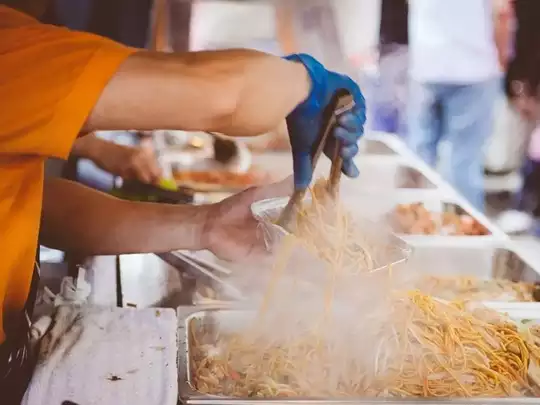The Union Health Ministry, in collaboration with the Ministry of Housing and Urban Affairs, has tasked the States and Union Territories with developing 100 food streets in 100 districts across the nation.
This initiative is being undertaken as a pilot project to serve as a model for the development of similar streets across the nation in order to ensure secure and hygienic food practices. According to the Ministry of Health, the goal of this initiative is to promote safe and healthy food practices among food businesses and community members, thereby reducing foodborne illnesses and improving overall health outcomes.
In a letter to states, the Union Health Secretary Rajesh Bhushan and the Ministry of Housing and Urban Affairs Secretary Manoj Joshi wrote, “Easy access to secure and hygienic food is essential for the health of citizens. In addition to promoting the eat right campaign and food safety, safe food practices will improve the hygiene credibility of local food businesses, enhance local employment, tourism, and the economy as a whole. Additionally, it results in a cleaner and sustainable environment.”
According to a statement issued by the Ministry of Health, this unique initiative will be implemented by the National Health Mission (NHM) in coordination with the Ministry of Housing and Urban Affairs and with technical assistance from FSSAI. States/UTs will receive Rs. 1 crore per food street/district as part of the initiative’s financial support to address critical gaps. 100 of these food streets will be developing in 100 districts across the nation (List provided below). This assistance will be provided as part of the National Health Mission (NHM) at a ratio of 60:40 or 90:10, with the stipulation that these food avenues will be branded in accordance with Food Safety and Standards Authority of India (FSSAI) regulations.
Municipal Corporations, Development Authorities, and District Collectors at the state level will undertake significant initiatives to ensure convergence of financial resources and physical infrastructure. Diverse other initiatives, such as training of food handlers, independent third-party audits, and certification of Eat Right Street Food Hubs ‘SOP for Modernisation of Food Streets’, have been implemented to improve food safety standards.
Schemes such as “Support to Urban Street Vendors (SUSV)”, a component of the Deendayal Antyodaya Yojana- National Urban Livelihoods Mission (DAYNULM), have also been implemented by the Ministry of Housing and Urban Affairs.
Also read this:SC gives States, UTs three months for providing ration cards to migrant labourers
In addition, states and territories may conduct training programs for street vendors to educate them on food safety, hygiene, and refuse disposal, according to the statement.




